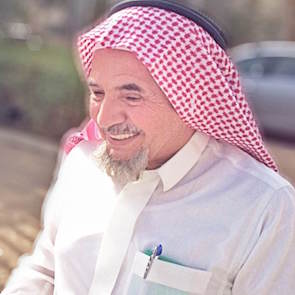Antécédents de l'affaire: Abdulla Al-Hamid
Le 9 mars 2013, le tribunal spécial de Riyad a rendu un verdict dans les affaires ouvertes contre les défenseurs des droits humains Dr. Mohammed bin Fahad Al Qahtani et Dr. Abu Bilal Abdullah al-Hamid, fondateurs de la Saudi Civil and Political Rights Association (ACPRA). Mohammed bin Fahad Al Qahtani a été condamné à 10 ans de prison, tandis qu'Abu Bilal Abdullah al-Hamid a été condamné à cinq ans de prison, qui s'ajoutent à une précédente peine de six ans. Les défenseurs ont également été condamnés à une interdiction de voyager pendant une période égale à la peine de prison, qui prendra effet au terme de leur peine. La cour a dissous l'ACPRA, saisi ses biens et stopper ses activités, l'accusant de ne pas avoir obtenu de licence officielle.

Abdullah Al-Hamid est membre fondateur de l'ONG Saudi Civil and Political Rights Association (ACPRA). Il a été condamné à 11 ans de prison le 9 mars 2013. Il est actuellement détenu dans la prison Al-Ha'ir à Riyad.
On 9 March 2013, Riyadh Specialized Criminal Court issued its ruling on the cases of human rights defenders Dr. Mohammed bin Fahad Al-Qahtani and Dr. Abu Bilal Abdullah al-Hamid, founders of the Saudi Civil and Political Rights Association (ACPRA). Mohammed bin Fahad Al Qahtani was sentenced to ten years of imprisonment, while Abu Bilal Abdullah al-Hamid received a five year prison sentence, in addition to confirming a previous sentence of six years. The human rights defenders also received a travel ban period equal to the period of imprisonment, to start following the completion of their sentences. The Court also dissolved ACPRA, confiscating its assets and halting its activities, on the accusation of failing to obtain an official license.
The human rights defenders, who are currently detained in Al Malaz Prison in Riyad, intend to appeal the Court's sentence, which can be done during a period of 30 days from 12 March 2013. After sentencing, the judge ordered the immediate arrest of the two human rights defenders and the dissolution of ACPRA, the confiscation of its assets and the closure of its website and social media accounts linked to ACPRA. The sentence came after ten court sessions that began in June 2012, most of which were held in secret. The trial continued in-camera until the fifth and last session, when the judge finally opened the proceedings and allowed the presence of media, lawyers and human rights activists, who attended along with members of the security forces.
The list of charges brought against Mohammad bin Fahad Al-Qahtani included taking part in the establishment of an unlicensed association; seeking to undermine state policies; providing false information about Saudi Arabia to the United Nations human rights mechanisms; inciting international organisations against the Kingdom of Saudi Arabia and agitating them to criticise the civil, political, economic, social and cultural pillars of the country; mobilising public opinion against the security institutions and senior officials by accusing them of human rights violations including killings, torture, and enforced disappearances; dubbing the Government of Saudi Arabia as a police state; accusing the judiciary of injustice; questioning the integrity and religion of the senior clergy in the country; insulting state officials and questioning their integrity; seeking to create strife and schism in society; rebelling against the ruler and his heir apparent; and preparing and storing information detrimental to public order.
The list of charges brought against Abu Bilal Abdullah al-Hamid included destabilizing the security; spreading chaos; violating public safety; fragmentation of national unity; destruction of the capabilities of the nation and its gains; planting the seeds of discord and dissent; and publishing information on the Internet related to his interrogation, after he reportedly pledged not to publish material for the purposes of incitement and in order to influence public opinion and fair trial.
Other members of ACPRA have also been targetted and imprisoned in the last twelve months, including Mr Muhammad Saleh Al-Bejadi, a leading human rights defender and founding member of ACPRA, who is currently serving a four year prison sentence after being convicted by the Specialized Criminal Court in April 2012 on charges including "inciting demonstrations". On 22 November 2011, Mr Suliman Ibrahim Al-Reshoudi, a well-known human rights defender and director of ACPRA, was sentenced to fifteen years' imprisonment and a fifteen years travel ban to start following the completion of his sentence. After a grossly unfair trial, Suliman Ibrahim Al-Reshoudi was convicted on charges including mobilizing the public against the monarchy, forming a secret organisation, financing terrorism, and money laundering. The human rights defender, aged 74 and in poor health, was released on bail while the trial was ongoing.
Front Line Defenders expresses serious concern at the harsh sentences handed down to human rights defenders Dr. Mohammed bin Fahad Al Qahtani and Dr. Abu Bilal Abdullah al-Hamid, and views these sentences as forming part of the ongoing campaign of judicial harassment of ACPRA members, including arbitrary arrests and trials; a campaign which Front Line Defenders believes is intended to impede the peaceful and legitimate work of human rights defenders in Saudi Arabia.
Front Line Defenders urges the authorities in Saudi Arabia to:
- Immediately and unconditionally reverse the sentences given to Dr. Mohammed bin Fahad Al Qahtani and Dr. Abu Bilal Abdullah al-Hamid and ensure their release;
- Cease the ongoing campaign of judicial harassment of ACPRA members, and take immediate measures to reinstate the legal status of the organisation;
- Guarantee in all circumstances that all human rights defenders in Saudi Arabia are able to carry out their legitimate human rights activities without fear of reprisals and free of all restrictions including judicial harassment.
